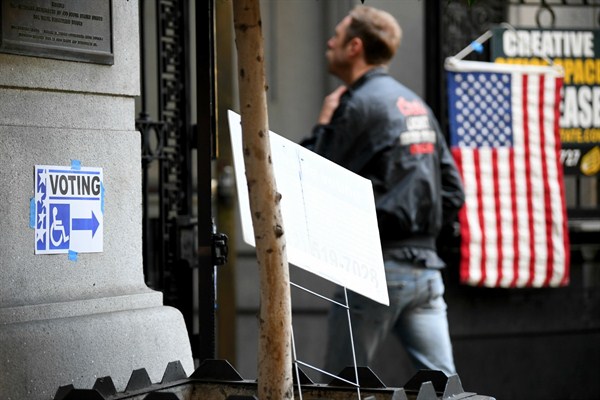The 2020 U.S. presidential election is still a year and a half away, but the debate over the future of American foreign policy is already taking shape. For now, that debate is primarily taking place among foreign policy experts, with a few of the Democratic presidential hopefuls also offering outlines of their priorities for American engagement with the world. But a report published this week by the Center for American Progress unintentionally raises an interesting question: Is expert opinion among the foreign policy elite driving that debate, or is it the popular attitudes of everyday Americans?
If I say the report unintentionally raises this question, it is because of its title, “America Adrift: How the U.S. Foreign Policy Debate Misses What Voters Really Want.” A closer inspection of the findings, though, suggests that the divide between popular attitudes and expert opinion on the broad goals of U.S. foreign policy is less pronounced than that.
Using focus groups and online surveys, the report’s authors try to determine whether “voters in Western societies [are] experiencing a genuine attitudinal break with the old democratic order, or rather, are they going through a corrective period based on years of pent-up frustrations about economic and social conditions that have yet to improve?”

